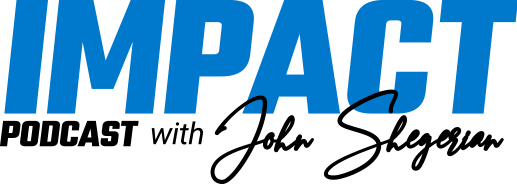
If not disposed of properly, a business could be opening itself up to serious problems.
All hardware, including hard drives, pictured here, should be responsibly recycled for security and sustainability reasons.
by Gene Marks
Published June 11, 2024, 5:00 a.m. ET
Microsoft Corp. announced last month a new collaboration with PC manufacturers to launch new laptops and other devices that “leverage AI and come with higher processing power, all-day battery life, and a suite of other features.”
The company says that this new line of PCs — a partnership with companies such as HP, Dell, Samsung, ASUS, Acer, Lenovo, and Microsoft Surface — is “20X” more powerful and up to “100X” more efficient to run AI workloads.
It’s obvious that a new generation of powerful devices will soon be replacing what businesses are using today. But what to do with your older hardware? If not disposed of properly, a business could be opening itself up to serious problems.
“There are many risks, but the biggest by far is potential data breaches that could cost your company untold thousands or even millions of dollars,” said Andrew Segal, the president of eForce Recycling in Grays Ferry, which provides recycling services to businesses and individuals across the Delaware Valley.
AJ Porrino, director of The E-Waste Project, said hard drives, in particular, can contain sensitive information that needs to be properly handled. The E-Waste Project is a community collective based in Norristown that offers a variety of recycling services including regular “Drop-Off Events.”
According to a 2017 study from the National Association for Information Destruction (NAID), 40% of devices that were used in both commercial and personal environments and then resold contained personally identifiable information, including credit card numbers, contact details, usernames and passwords, company and personal data, tax details, and more.
“In the wrong hands, it’s a recipe for disaster and could collapse a company in seconds,” said Porrino.
What can you do to protect yourself?
For starters, it’s important to render the old device completely inoperable. In Microsoft Windows, there’s an option to reset your computer, which will remove all information from it. Both Apple iOS and Android operating systems have similar options. Other good (and free) applications to ensure that all data and user accounts are removed from a device can be found in this great list from Lifewire. Besides using software, many IT experts also encourage people to destroy the device’s physical hard drive by hammering a nail through it.
Next, you need to actually dispose of the device. Simply tossing it into the trash is not recommended.
“Please don’t just throw away your electronics,” said John Shegerian, the CEO of ERI, a New Jersey-based integrated IT and electronics asset disposition provider and cybersecurity-focused hardware destruction company. “Electronic devices contain toxins like mercury, arsenic, cadmium, lead, etc. that can leach into the soil and water. All electronics can be responsibly recycled, and their materials entered into the circular economy so that every element goes to beneficial reuse.”
Recycling isn’t just limited to tablets and laptops. All hardware, including monitors, routers, switches, and printers should be handled in a similar manner. The best way to ensure that your device is recycled properly is to use a certified recycler.
Segal recommends finding an e-waste recycler that’s been certified by the NAID. Using a firm with these certifications will ensure that the disposal of obsolete electronic devices that “can no longer be utilized or repurposed” will be handled in an environmentally sustainable manner.
Porrino also said that not dealing with a reputable recycling company could create significant security headaches.
“A certified reputable company eliminates vulnerability in data security and environmental harm,” he said.
Porrino also warned against using companies that are just resellers of hardware or have the words junk and cleanout in their title and credentials.
“A company’s discarded IT is not junk,” he said. “Some firms are not as concerned about the safety of their customers’ information and the environment. They’re only concerned about emptying that dump truck and filling that dump truck. Your equipment will be sold to the highest bidder on the street and the remaining unwanted parts will be discarded in a desolate spot or landfill where it will unleash a plethora of harmful and toxic chemicals and components into the environment. “
To find a recycler for your company’s IT hardware — or even for your own personal devices — you can try RecycleNation.com. Some big box retailers, like Staples and Best Buy, also have “excellent and innovative e-waste collection programs,” according to Shegerian.
“You have to stick with the recycling experts,” said Porrino. “It’s 1000% worth the money. You can’t put a price on safety.”
Full article link:



















